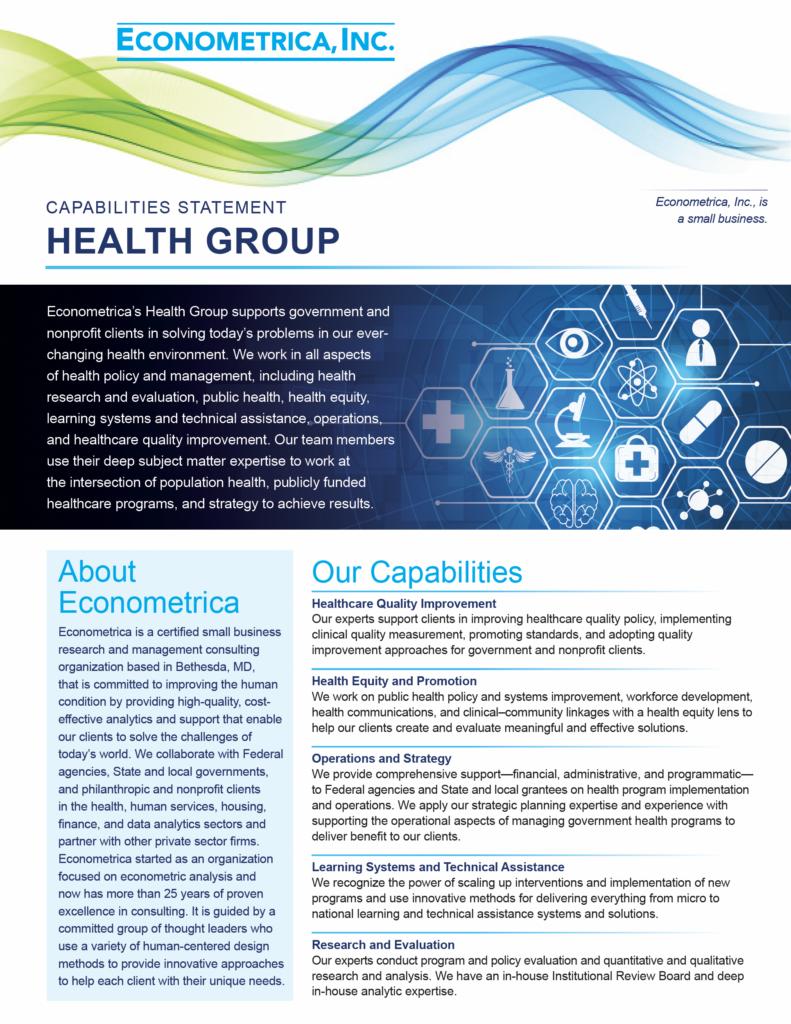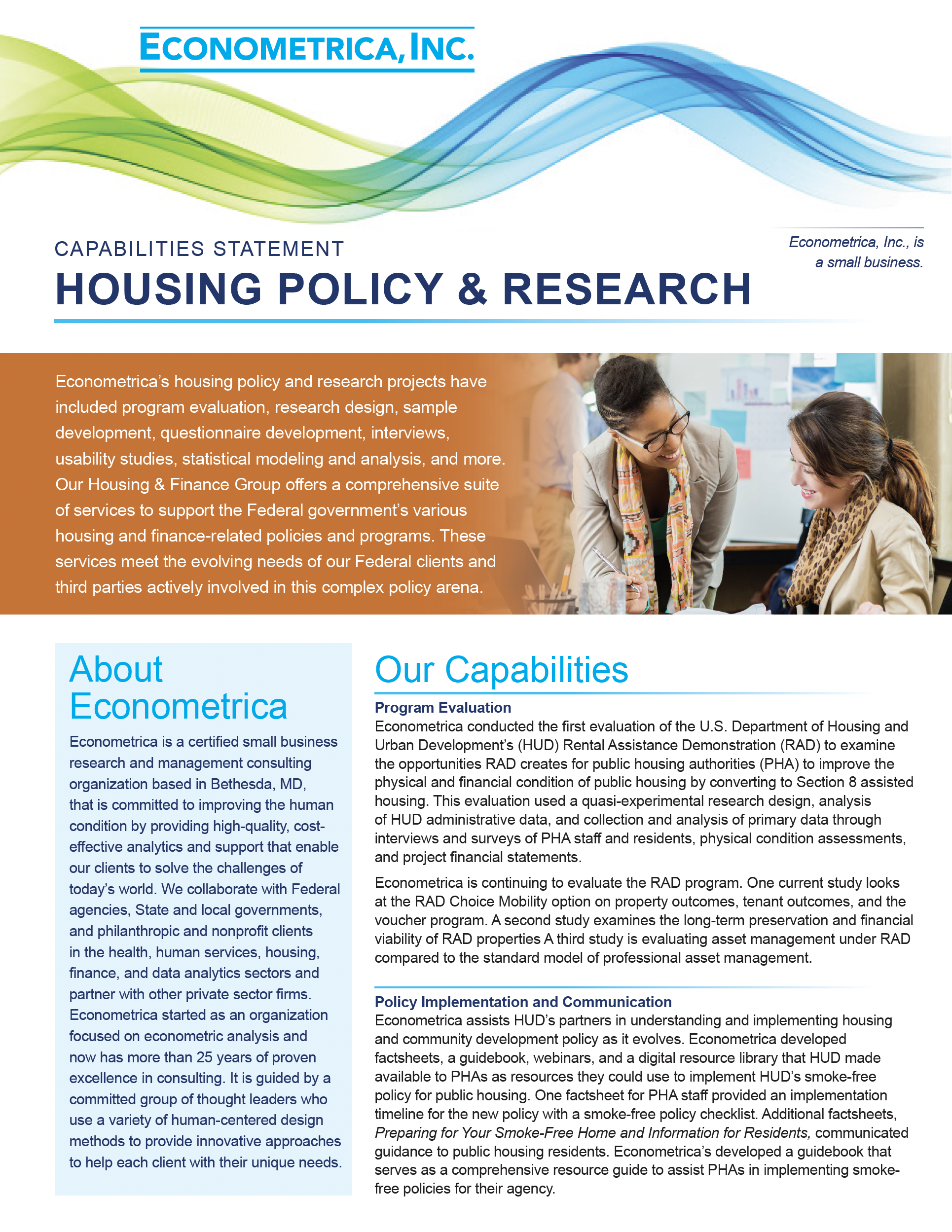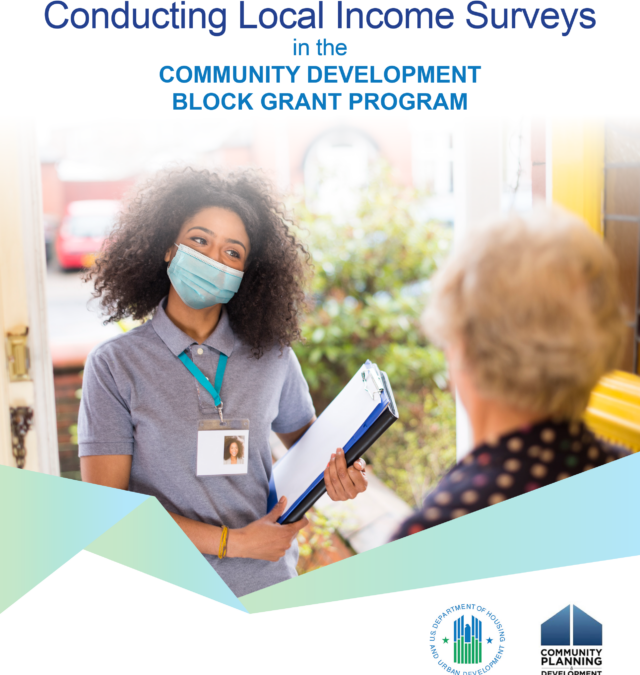
Econometrica Develops CDBG Toolkit for HUD
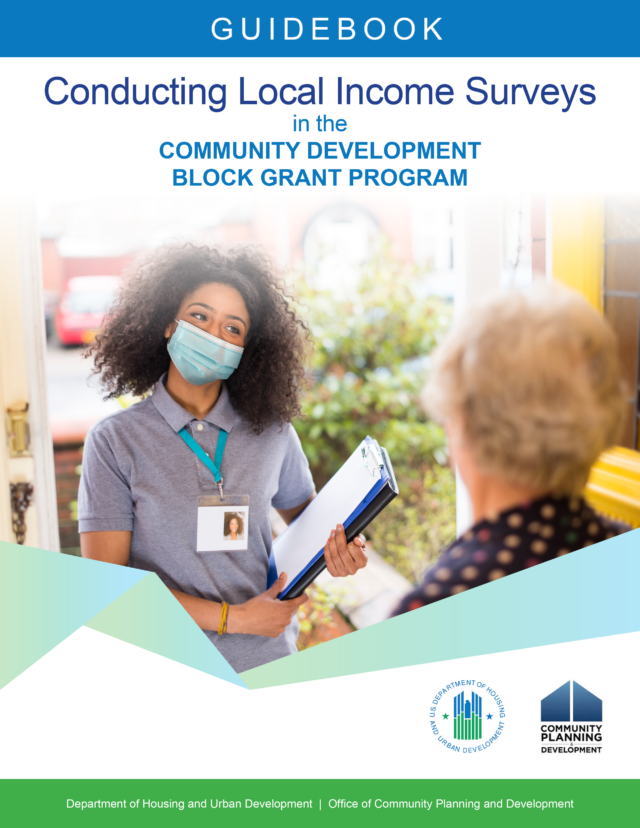
Econometrica has developed a complete toolkit that enables communities to conduct a local income survey that meets the guidelines developed by the U.S. Department of Housing and Urban Development (HUD) for allocating Community Development Block Grant (CDBG) funds. CDBG funds can be used to improve local infrastructure and meet other community needs, and some communities are required to demonstrate that the residents of the service area for CDBG activity meet low- to moderate-income (LMI) requirements. They can use the American Community Survey income data or conduct their own income survey.
The CDBG Income Survey Toolkit includes the following resources and tools:
- A 40+ page guidebook that includes detailed, step-by-step instructions for the entire survey process.
- Ready-to-use survey instruments for both in-person and mailed surveys, including both English and Spanish versions.
- Detailed user guides for each of the survey instrument options.
- Outreach materials, such as customizable flyers, letters, and more.
- Pre-programmed Excel tools to analyze the data, with easy-to-follow instructions.
- Case management documents to track attempts to survey each address.
Econometrica’s staff combined their expertise in Federal housing programs, data analytics, software application programming, and project management to develop the complete toolkit for HUD and communities across the country.
Work With Us, Work for Us
Econometrica specializes in research and management across numerous industries in both the public and private sectors. We are always looking to hire the best and brightest in data science, health, grants management, energy, homeland security, housing and community development, capital markets and finance, and transportation. We work as the lead service provider, and also as a capable outsource partner to other consultancies. To work with us on your next project, visit us online and email a member of our executive staff in your preferred specialty. To explore the benefits of working for us, visit our careers page.

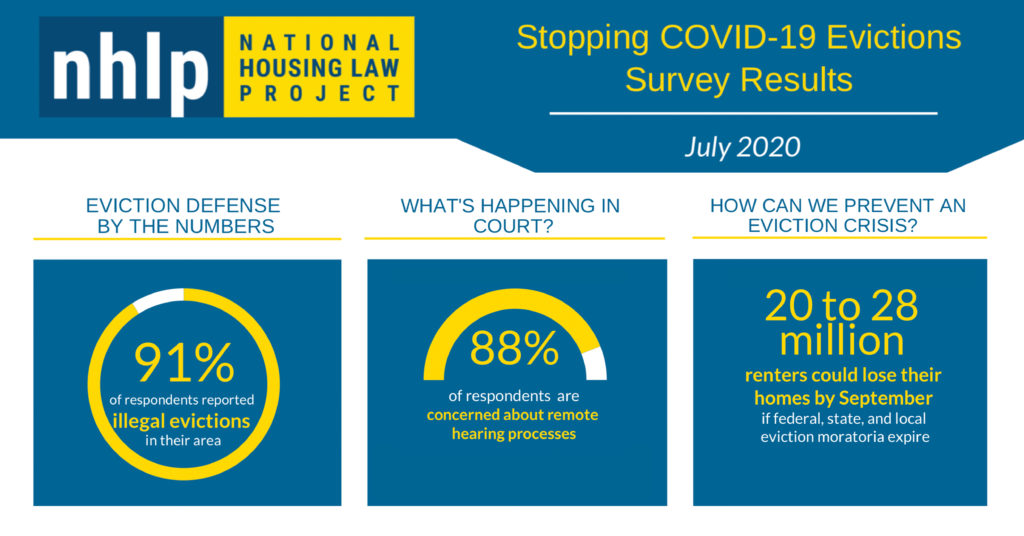 Rising eviction cases, more illegal evictions and lockouts, and judges ignoring or inconsistently applying federal and state law are some of the problems a new survey identifies since the end of the federal eviction moratorium.
Rising eviction cases, more illegal evictions and lockouts, and judges ignoring or inconsistently applying federal and state law are some of the problems a new survey identifies since the end of the federal eviction moratorium.